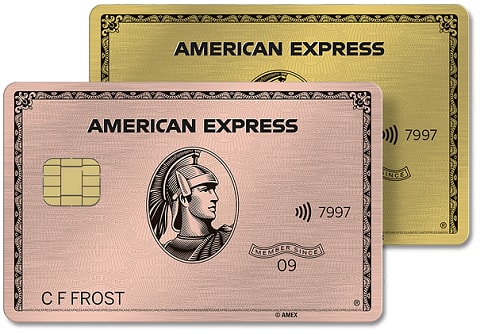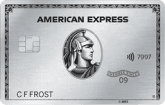Our Best Travel Credit Cards
See Rates & Fees
See Rates & Fees
See Rates & Fees
Terms Apply, See Rates & Fees
Terms Apply, See Rates & Fees
This site is a free online resource that strives to offer helpful content and comparison features to our visitors. We provide free access to our comparison tools and helpful content through advertising compensation from companies that appear on our site. While this compensation may influence which products we write about and where they appear on the site, it does not affect our reviews or opinions. Our partners cannot pay us to secure favorable reviews or recommendations. Company listings on this page do not imply endorsement. We do not feature all providers on the market. Except as expressly set forth in our Terms of Use, all representations and warranties regarding the information presented on this page are disclaimed. The information, including pricing, which appears on this site is subject to change at any time.


The Wells Fargo Autograph Journey℠ credit card is a points-based travel card. You can earn one reward point for every dollar spent, with bonus points for purchases related to hotels, restaurants, airfares, and other travel expenses. It also offers coverage for various travel situations, including lost luggage and travel delays.


The Capital One Venture Rewards card is a low-fee travel rewards card that’s ideal for the occasional traveler. It offers travel benefits like lounge access, rental car collision coverage, and travel accident insurance, on top of an unlimited two miles per dollar on every purchase.


The Chase Sapphire Preferred credit card is a good option for anyone looking for a reasonably priced card to get the most out of their travel, dining, and grocery shopping expenses. The card is loaded with great perks and rewards that more than makeup for its $95 annual fee.


The Citi Strata Premier℠ Card offers excellent international travel perks and flexible ways to earn rewards at an affordable price. It’s easy to earn rewards with 3x points offered on common purchases like restaurants, gas stations, and grocery stores. Additionally, with no fees on foreign transactions, you don’t have to worry about racking up charges when you use your card while traveling abroad.


The Gold Card from American Express is best suited for anyone who dines out at restaurants frequently or spend a lot at U.S. supermarkets each year. The Gold Card's rewards more than pay for the $325 annual fee for many cardholders. Overall, the Gold Card is a great option if you dine out or travel frequently.


The Bank of America® Travel Rewards credit card has no annual fee, lets you earn 1.5 points for each dollar you spend on purchases, and features a generous welcome bonus and intro APR. It’s a great choice for travelers who want to offset the cost of travel purchases from flights to hotels to rental cars.


The Platinum Card® from American Express is a luxury travel rewards card with a steep annual fee but offsets it with more than $1,500 in annual statement credits. Overall, this is an excellent card for frequent travelers who can make use of the statement credits.
visited a credit card site this month
A solid travel credit card adds valuable perks and miles-earning potential to your wallet. But picking the best one involves more than selecting the first offer you see or applying for a card your friends have. It requires understanding your travel needs and spending habits.
We've rounded up our picks for the best travel credit cards based on the costs, rewards, perks, customer service, and more.
The best travel rewards credit card for you depends on your needs, spending habits, and hotel and airline preferences.
To choose a travel rewards credit card, look at rewards structure, redemption rates, ancillary benefits (like travel insurance or airport lounge access), fees, and terms.
Other types of credit cards might be a better fit for you, depending on your situation.
In a nutshell, a travel credit card gives you miles or points for purchases you make. You can redeem these rewards for travel expenses, like flights, car rentals, and hotel stays. You can also use points for cash back, statement credits, gift cards, or online purchases.
If the travel credit card has transfer partners, you can transfer your points to a partnering hotel or airline loyalty program account. The main draw? Flexibility. Some transfer partners offer a higher redemption rate — think 1:2 points or 1.5:2 points — so your rewards go further.
Travel credit cards also have travel-specific perks like trip delay insurance, car rental insurance, and free checked bags. Each card features its own perks, which can equate to valuable savings.
Sign-up bonuses: Many travel credit cards let you earn robust rewards if you spend a certain amount within a few months after you open an account. For example, spend $4,000 as a cardholder in the first three months and rack up 75,000 points.
Rewards: Besides racking up points on travel purchases, a travel credit card might offer bonus points or miles when you spend on restaurants, airfare, hotels, and gas.
Travel perks: Travel benefits range from free hotel stays to travel credits, trip delay insurance, car rental insurance, and no foreign transaction fees. Using all benefits to make the most of a travel card is a good idea.
Fraud protection. Fraud can and does happen. Should you spot an unauthorized charge or fishy activity with your transactions, fraud protection can limit your liability. In fact, many card issuers offer zero liability protection.
Annual fees: Annual fees add to the cost of a credit card, so you'll want to make sure you use the card's perks and points to offset the costs. With travel cards, luxury perks usually come with premium cards with high annual fees. That's not to say you should completely avoid cards with annual fees. Just make sure the cost is worth it.
Potential for overspending: It's easy to get caught up in a travel card's perks and rack up a balance on your card. Another temptation? You might overspend during your travels.
High interest rates: Travel rewards cards tend to apply high annual percentage rates (APRs) to a revolving balance. Paying interest on your travel card can negate the value of your rewards.
Travel credit cards let you earn miles or points for your purchases. They fall into three categories: general purpose, hotel, and airline. You can use points from travel cards to book flights and hotel stays. Many let you swap points for statement credits or cash back.
Each travel credit card has its own rewards structure, ways to earn more points, and added perks. There are also varying interest rates and fees.
Aside from that, travel credit cards are unsecured, so you don't have to provide a deposit as collateral. You get a monthly statement and are responsible for paying the minimum balance each billing cycle.
General-purpose travel rewards cards can be used for a lot of things. For example, you can pay off your balance with statement credits or trips you make through the card issuer's travel portal. You can also use your points for gift cards or online purchases.
"General-purpose travel rewards might be better for most folks, especially if they are new to using travel points," says Emily Maretsky, a fee-only fiduciary financial planner and founder of Educated Financial Planning.
The beauty of a general-purpose card is in its versatility.
"These cards earn points that can be redeemed across various airlines, hotels, or even for cash back, and are great for people who want flexibility," says Daniel E. Milks, a CFP® and co-founder of Fiduciary Young.
So, if you don't want to be tied to a particular hotel or airline or like the option of using your points for purchases beyond travel, a general-purpose card might be the way to go as you'll earn the same points no matter where you book. Conversely, you might earn points quicker through travel cards partnered with popular hotels or airlines.
If you're loyal to a particular hotel or hotel group, a hotel travel credit card might be more your speed. These cards are co-branded with hotel chains, and you can earn rewards specific to that brand. With a hotel card, you might rocket to elite status or get free hotel perks, such as flexible check-ins, room upgrades, and complimentary breakfast.
These cards are ideal for frequent hotel guests looking to rack up points for free stays, says Milks.
Like a hotel travel card, an airline credit card is co-branded with an airline to offer cardholders robust welcome bonuses and attractive perks. These cards offer free or discounted companion passes, free checked bags, and lounge access.
Miles you earn through these airline-specific cards get deposited into your account through the airline's loyalty program. If you have a preferred airline and fly frequently, an airline travel card could suit your needs.
A travel card can be a good fit if you use the rewards and travel-specific perks. It all boils down to your spending habits and travel preferences.
A hotel-specific card may be a good fit if you prefer hotel stays over flights. An airline card may make more sense if you're a frequent flyer. A general-purpose travel rewards card would work best if you like the flexibility of redeeming points for various travel-related expenses.
An attractive travel credit card offers different ways to earn multipliers of points. For example, you can earn 10X points on hotels if you book through the card issuer's travel portal. You can also earn 3X points on restaurants and 2X on grocery stores.
To maximize points multipliers, Kullberg recommends picking a card that allows you to earn a lot of points from your current spending habits.
"Before you start comparing cards, get an idea of what you typically spend every month," says Kullberg. "Do you spend a lot in a few categories like food and travel, or is it more spread out across a lot of categories?"
A top card will offer multiple points in your major spending categories.
Transferring your miles or points to a transfer partner has a one-two punch. First, it widens your possibilities on where to spend your points. Second, certain transfer partners feature higher redemption values. So you might get a 2X redemption value — or even higher.
You’ll want a card with transfer partners that give you the highest redemption value and are a good fit for your travel needs.
Also, bear in mind any expiration policies and block-out dates. Transferring points is a one-way street. Once you move over your points, they're locked into that account.
Opening a travel credit card with a solid welcome offer can help you rack up points quickly.
"This is the fastest way to earn a lot of points with the least amount of spend," says Kullberg. "Some offers can go up to 250,000 bonus points."
However, says Kullberg, make sure you can comfortably hit or even exceed the minimum spend within the specified time limit. It's not worth going into debt to get bonus points.
If you're eyeing a card with a welcome bonus, consider timing your spending or planning to put a large-ticket expense within the bonus window, usually the first few months after opening your account.
The value of a travel perk is whether you'll use it or not. If you typically rent a car, car rental insurance can be handy.
Other perks, such as complimentary room stays or elite status with a hotel group, may be specific to a hotel or airline. Free checked bags, airport lounge access, and trip delay insurance can also be valuable benefits.
A foreign transaction fee is usually 1% to 3% of the transaction amount. So, if you've put $4,000 on your travel card when vacationing abroad, that's an extra $120 in fees. A card with zero transaction fees can be a boon if you plan on international travel.
Some of the best travel rewards cards have a fee, so don't let that scare you, says Kulberg.
"Typically, travel rewards cards with fees have valuable perks such as travel insurance, baggage delay coverage, and even airport lounge access," she says.
But if you're new to travel credit cards, a card with a low annual fee could be a better fit. That way, you're not scrambling to make purchases to offset the annual fee. You can also learn how to get the most out of a travel card without the looming yearly fee.
Make sure the points or miles are flexible and easy to redeem without restrictions or blackout dates, says Milks.
Another thing to keep an eye out for? Look for preferred or premium transfer partners linked with a particular travel card.
The reward categories only make sense if you spend in categories that reap the most points. For example, if you spend on flights, bonus points for airfare might be in order. Or, if you tend to put your grocery purchases on a credit card, consider a card where you reap higher points at supermarkets.
Spend time thinking about reward categories that are in step with your financial habits. That way, you can make the most of the reward structure and categories and won't have to change your spending habits to rack up miles.
This step especially rings true if you've got your eye on a credit card with a high annual fee, explains Kullberg.
For example, if you get a card with a $300 annual fee and it gives you airport lounge access valued at the same amount, the fee could be offset.
"But, if you don't care about the airport lounge access or the airports you [frequent] don't have a lounge you can use, that perk is of no value to you," says Kullberg.
If you want to reap many points for a minimum spend, fold in the sign-in bonus when shopping for a travel card. While a large sign-up bonus has its allure, you'll want to ensure you can meet the spending threshold. Otherwise, the welcome bonus won't matter.
For example, consider timing your application to coincide with a large-ticket purchase, recurring bill, or vacation to get points on charges you're already planning.
Airline-specific and hotel-co-branded credit cards usually have more robust perks tied to flights or hotel rooms, respectively. Other perks include travel insurance, car rental insurance, TSA Precheck, Global Entry, and airport lounge access.
Not all perks are equal. Figure out which are most valuable to you and which ones you'll likely use the most. For instance, if you fly in and out of certain airports, are there airport lounges you can access with a particular card?
To make the most of your travel card's rewards, start by reading through the benefits of each card, says Maretsky. For example, note whether they feature perks like travel insurance, rental car insurance, or priority boarding.
"Those little things are nice things to have up your sleeve when traveling," says Maretsky.
Try to make the most of special benefits that disappear if you don't use them each month. For example, some cards give you monthly credit toward a food delivery app.
"A lot of people don't remember to use it monthly," says Maretsky. "But keeping in mind that you've got this little bit each month will make sure you take advantage and will make up for fees you might be paying for that card."
Ideally, you want to pay off your credit card completely each month, says Jay Zigmont, a certified financial planner (CFP®) and founder of Childfree Wealth.
"If you ever pay an interest fee, you may pay more than the benefits are worth," he says.
While travel can add up quickly, to avoid racking up a high card balance, establish a vacation savings fund and aim to stash enough in your designated fund so you have enough to cover as much of your trip as possible. If you aren't able to pay your card in full, create a plan to pay off your balance in a timely fashion. Create a debt payoff plan to knock down your balance to zero.
While travel cards with high annual fees can offer premium perks, high reward-earning rates, and sign-up bonuses, consider keeping your annual fees low.
"That way, you aren't paying more in fees than what you're gaining in benefits,” says Zigmont.
Still, a high annual fee card could be worth it if the perks justify the yearly cost. For example, a travel card might offer a free monthly food delivery or rideshare credit, free checked bags or travel credit, or a complimentary hotel stay on your card anniversary. If you use these perks, they can justify the costs.
"The key is that the features have to be worth it to you and cover the annual fee," says Zigmont. "Cards with points tend to have more flexibility in redemption, but you may get more miles from other cards if there is an airline or similar points program you already use."
Card perks and added benefits may be subject to change. Stay on top of these updates and any changes to a card's terms and fees.
Zigmont recommends keeping a spreadsheet of all the card's features and perks to note any changes or updates to your benefits, terms, and fees.
Non-travel cards often let you transfer points between cards, explains Leibel Sternbach, an EA, NSSA, ChFC, APMA®, and founder of Yields4U.com. That way, you can combine points to use them for travel.
This strategy requires doing some homework across credit cards you’re considering or already own.
Strategically transferring points in a mastermind fashion can help you get a greater transfer ratio for your earned points. For example, when you swap points for statement credit or cash, the transfer ratio is usually one cent per point earned.
But when you transfer your points to a partner airline or hotel, you can redeem two cents per point earned. Sometimes, you might find yourself with a 10X the usual points value.
For example, let's say you have a Chase Sapphire Card, says Maretsky. Instead of booking through the Chase Travel portal, she recommends transferring those points to the World of Hyatt portal as they’re usually worth more.
That said, be mindful of various point thresholds before you can transfer. For example, you might need to accrue 5,000 points before transferring to a specific partner airline portal. There are also expiration policies to watch for.
You have options if you're unsure whether a travel credit card is right for you. Consider these alternatives.
A cash-back card is a good fit if you want a credit card for everyday purchases. Instead of using your rewards toward travel, a cash-back card lets you redeem rewards for cash back, statement credits, or gift cards.
A cash-back card might have points multipliers in specific categories. Or there might be bonus categories that rotate every quarter. For example, you can scoop up 5X cash back on restaurants for three months, then switch to warehouse stores and specific big-box chains.
A store credit card can come in handy if you're loyal to a specific retailer. These cards give you reward points, exclusive discounts, promotions, and special financing at the store. For example, you might be eligible for interest-free payments if you pay off your balance within a window of time.
Retail cards usually only have perks for a retailer or group of retailers. While they're generally easier to qualify for, they can have steeper interest rates. You'll want to weigh the pros against the cons to choose your best option.
Balance transfer cards let you move your existing card balance to a new one with a zero- or low-interest introductory APR for a set timeframe, usually six to 18 months.
If you can pay off your balance before the standard APR kicks in, you can save a significant chunk of change. Balance transfer cards also have a transfer fee, usually from 3% to 5% or a flat fee — whichever is greater — of the amount you transfer to the new card.
A secured credit card requires an upfront deposit. It is designed for people who are building or establishing their credit. Should they fall behind on their payments, the lender uses the deposit to pay off the balance.
Your line of credit usually matches the security deposit. So, if you pay $250 upfront, your credit limit is $250. While secured cards typically have lower minimum credit requirements, they also tend to have lower limits and higher interest rates.
These cards are designed for young adults with limited or no credit history who aren't making much money. Some cards don't require a credit score whatsoever.
Student credit cards often have no annual fee, and some have cash-back earning potential. They can be a great way to build credit over time. However, perks on student cards may be limited or nonexistent.
Consider opening a business credit card if you own a small business. These cards may have points multipliers for specific spending categories, such as travel, office supplies, and marketing and advertising. You can also get perks like cell phone protection and extended warranties.
A business credit card helps keep your personal and business expenses separate, making financial housekeeping easier. Another benefit? You can also use points to put "money" back into your business.
To help you pick the most suitable cards for your needs and deliver on our mission to help you make the most informed decisions, our seasoned writers, editors, and experts evaluated and rated credit cards across four categories using detailed criteria.
These criteria included rates and fees, such as purchase and promotional APR, annual fees, annual balance transfer fees, and foreign transaction fees. We also researched features and benefits, including the base reward program, sign-on bonus, recurring bonus, and additional bonuses. Security, customer experience, and user experience were also factored into the selection process.
The best credit cards for travel depend on your individual needs. There are optimal travel credit cards for frequent flyer miles, flexible travel redemption, and hotel perks. To gauge the best travel rewards card for you, look at the points redemption rates, fees, introductory bonuses, and added benefits.
Visa and Mastercard are widely accepted. That said, Discover and American Express are also accepted internationally. Besides ease of use when traveling abroad, look for cards that don't charge foreign transaction fees and offer bonus perks like travel interruption insurance, airport lounge access, concierge service, and free checked bags.
Consider a travel credit card if you travel enough to make the card worthwhile. Consider a card if you'll make good use of its perks, which may include reward points when you book travel, reimbursement for TSA Pre-Check and Global Entry, trip interruption insurance, free checked bags, no foreign transaction fees, and rental car coverage.
Disclosure: This content is not provided by the issuer. Any opinions expressed are those of BestMoney alone, and have not been reviewed, approved or otherwise endorsed by the issuer.
Opinions, reviews, analyses & recommendations are the author’s alone, and have not been reviewed, endorsed or approved by any of these entities.
¤ See Rates and Fees